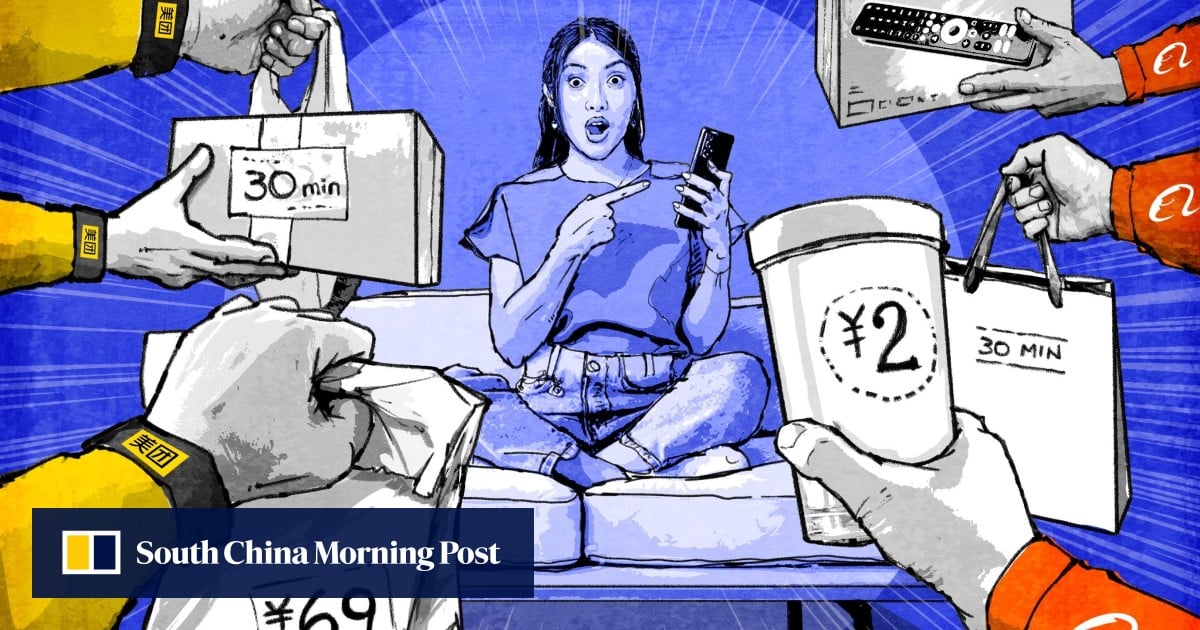
Since April, mainland Chinese consumers have been spoiled for choice, as instant commerce competition brought dazzling promotional subsidies and speedy deliveries right to their doorsteps.
Advertisement
Instant commerce – a turbocharged combination of online shopping and swift dispatch – had already made a typical lunchbox order cost around US$1 or US$2, which covered the food and the delivery fee.
On-demand delivery giant Meituan’s “Grouping for Good Meals” campaign, for example, offered a four-dish set meal – with a portion of rice and a drink – for 6.9 yuan (US$0.97) and delivery in just 27 minutes. A delayed delivery of more than 15 minutes would entitle the buyer to 4 yuan in compensation.
According to 30-year-old office worker Bo Wen from Guangzhou, capital of southern Guangdong province, the cheapest order he made online was a cup of coffee that cost 0.01 yuan on Taobao Shangou – the instant commerce service of Alibaba Group Holding, owner of the South China Morning Post.
This week, all three instant commerce platform operators – Meituan, Alibaba and JD.com – started accepting pre-orders for Apple’s recently launched iPhone 17 models. Buyers are expected to receive their new iPhones in as fast as 30 minutes as soon as delivery starts next week.
Advertisement
That reflected how instant commerce and its main providers have evolved over a short period of time, as they expanded the on-demand delivery coverage beyond food. It marked another step towards the transformation of retailing in China across online platforms and bricks-and-mortar stores.
Unlike past high-profile competition between Coca-Cola and Pepsi, Boeing and Airbus, and Apple and Samsung Electronics, China’s instant commerce service providers have relied on subsidies and a sharpened focus on becoming more efficient to fulfil orders across the country.


